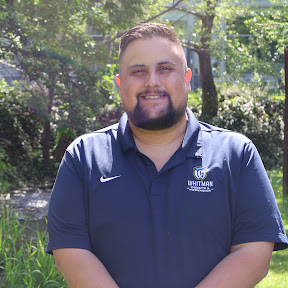Get in touch: (800) 551-3410

By the Juris Education Interview Team
Kiefer Storrer is the Assistant Director of Forensics at Whitman College, which also has a pre-law program.
Whitman College competes in Parliamentary Debate, which is overseen by the National Parliamentary Debate Association. We compete in this event at NPDA itself, the National Parliamentary Tournament of Excellence (NPTE) and Pi Kappa Delta (PKD). We also compete in the 11 American Forensics Association (AFA) Individual Events.
Students that compete at Whitman better their critical thinking skills, their media literacy, their public speaking, and their ability to speak truth to power. Oftentimes, while debate is inherently a competition, the first victory that any of us achieve is finding our voice.
I believe it is a mixture of two things. First, you’re going to be surrounded by people who want to talk for a living. This can be a pretty intense environment communicatively, especially for the “COVID Generation.” Secondly, in debate you’re not always going to be arguing for positions you agree with. Finding a way to balance what you believe versus what is “right” in terms of how to perform the best in the debate round is a task that even the most experienced debaters can struggle with, but that struggle will make you a better communicator. And the speaker you become on the other side of when a debate "clicks" is someone you should be proud of.
Because of the nature of the activity, students have to back up their assertions with evidence. This sense of required research and speaking allows students to become more confident because they will find that there are people who agree with them and that they can articulate what they are learning to say in communicable ways, and the various personal benefits of doing this kind of research help students feel more prepared and well-read. Finally, public speaking is just like a muscle that you train; the more you do it, the easier it gets.
Absolutely, many of my former partners and teammates, as well as students I have coached, have gone on to law school. While the research isn’t 1:1 parity with each other, the notion of building a case or writing a brief are very similar, conceptually. Plus, NPDA in particular asks students to familiarize themselves with a variety of different esoteric and policy-level positions, so this breadth of knowledge provides a great academic backbone for law school applicants.
Yes, as for the variety of reasons listed above. Once you become a strong debater, accustomed to giving speech after speech, weekend in/weekend out, any other forms of public speaking are pretty easy. While the academic rigor of law school can be more intense than debate, particularly in different ways, the research burden and work that goes into NPDA is quite intense and thorough, but your teammates and coaches are right there with you during this amazing time of learning. Finally, debate is a great opportunity for networking for both higher education and public and private law opportunities.
Do it. Whitman College Debate and Forensics prides itself on being an inclusive, accommodating, open-door-policy-held group. Many teams have similar viewpoints for walk-on students. The lessons you will learn in this unique experience will pay dividends in the long run.
Juris Education is proud to interview experts like Kiefer Storrer to help future lawyers understand the benefits of extracurricular involvement. Learn more about how our experts can improve your chances of getting into the law school of your dreams.